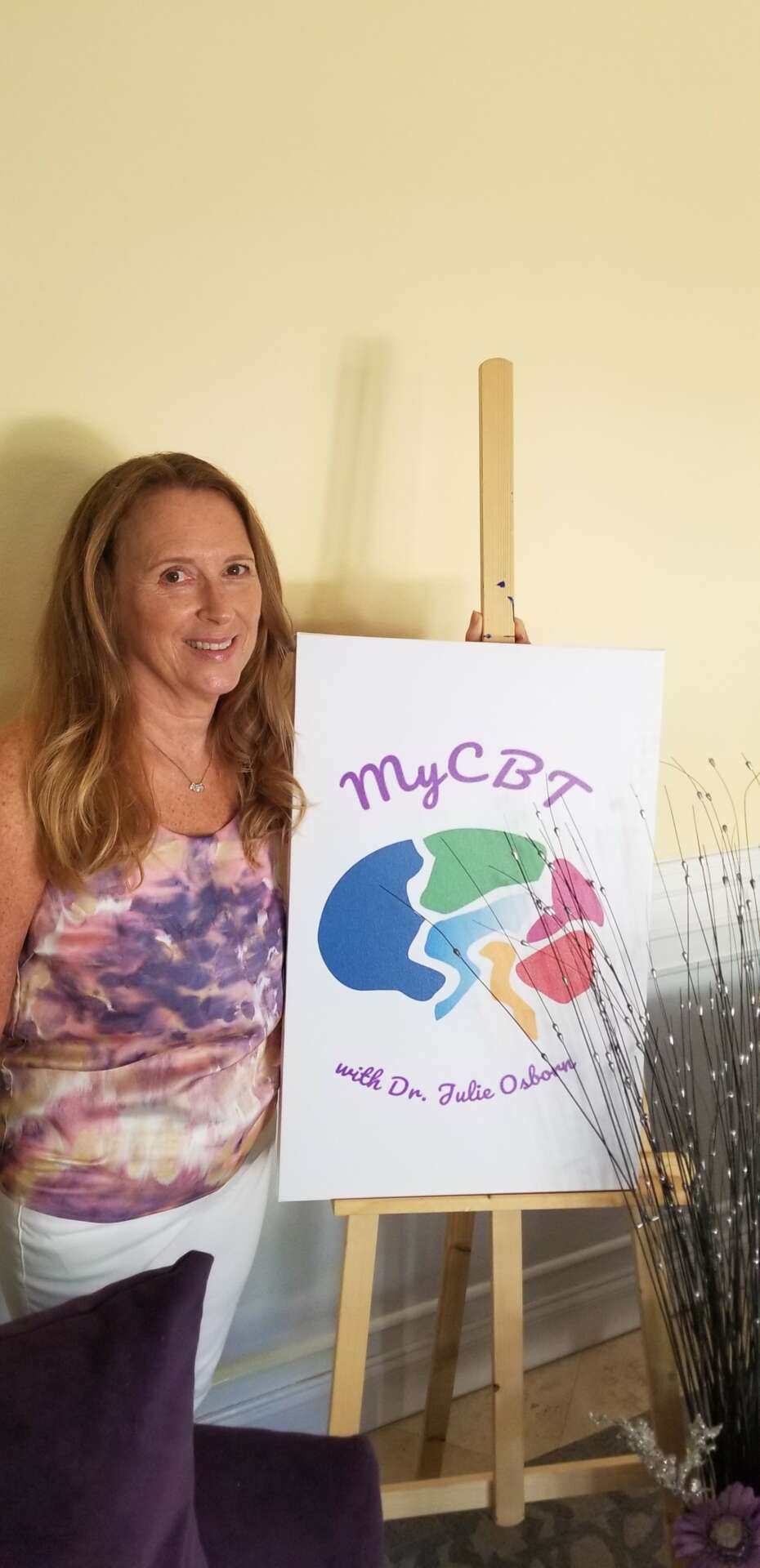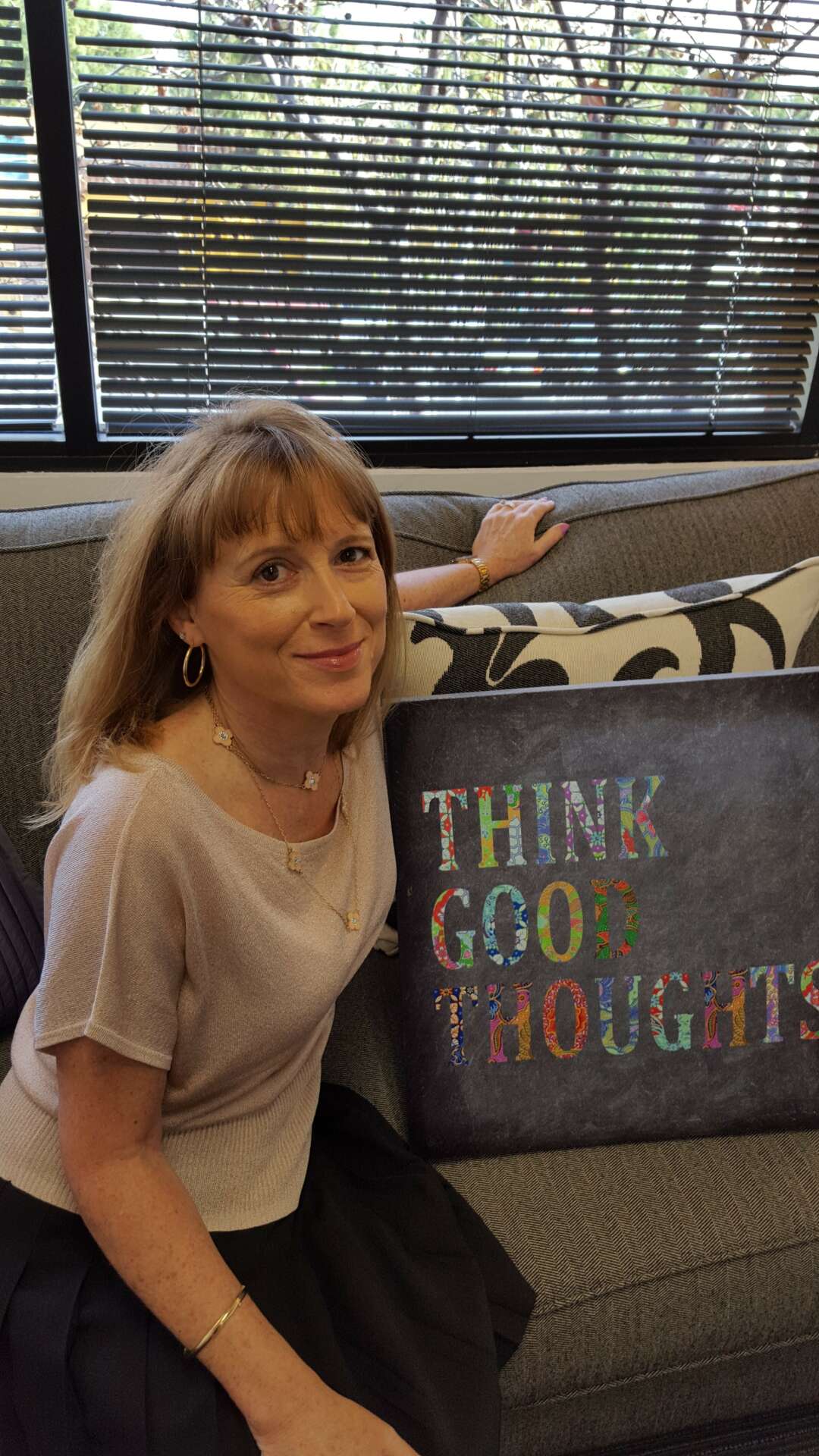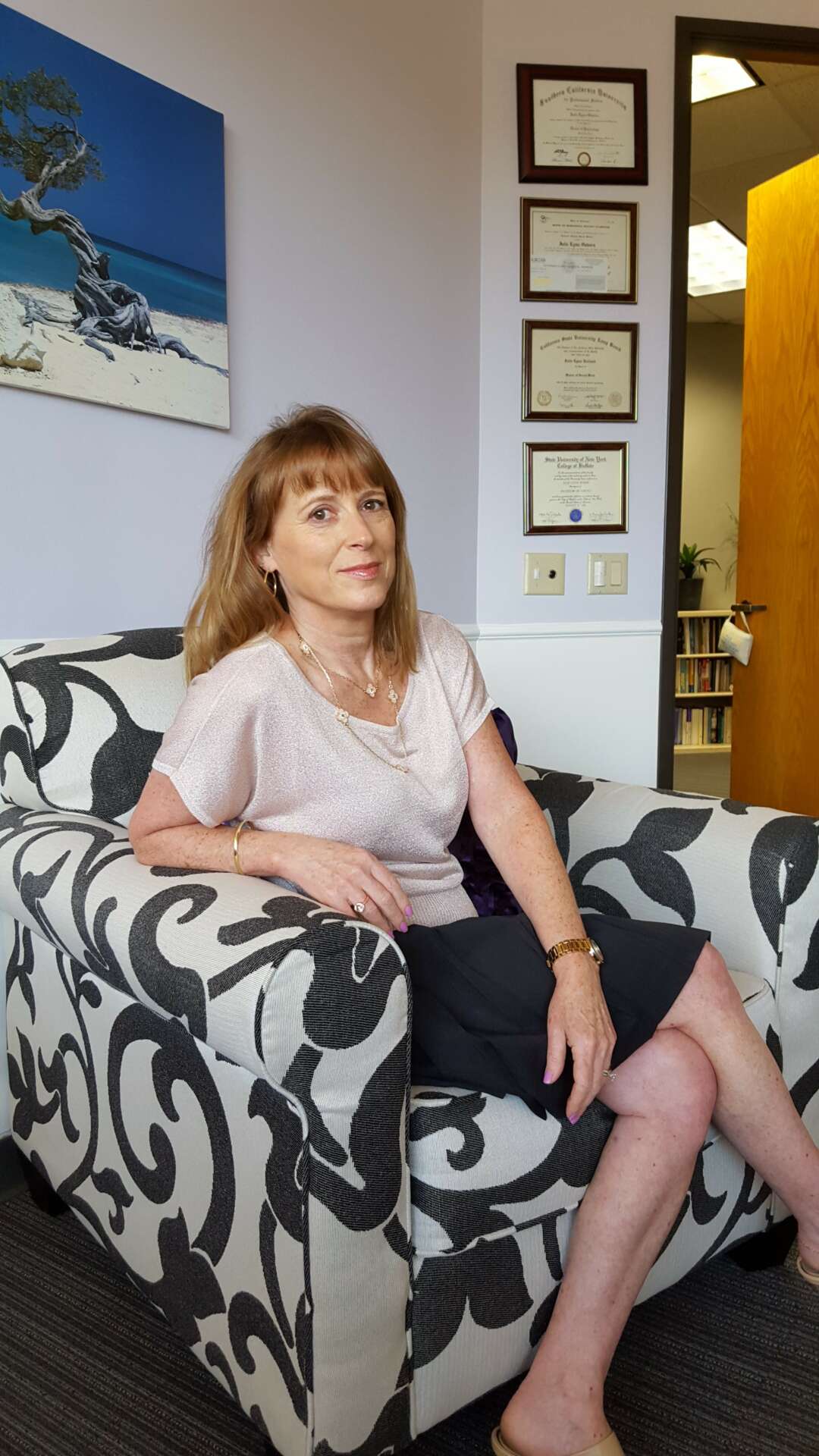We’re excited to introduce you to the always interesting and insightful Dr. Julie Osborn. We hope you’ll enjoy our conversation with Dr. Julie below.
Dr. Julie, looking forward to hearing all of your stories today. Can you open up about a risk you’ve taken – what it was like taking that risk, why you took the risk and how it turned out?
I have always been a risk adverse individual, I liked knowing my paycheck would show up on time and how much it would be. So starting a private practice full time was never in my plans. I was working at University of California Irvine full time as a therapist in the outpatient clinic. I also was the breadwinner for my family so all of the responsibility was on my shoulders. I decided I would see clients on my own only on Saturdays. This worked well and didn’t effect my full time job. It began to grow and I would fill up my Saturdays with clients on a wait list. After a few years I decided to add another day and UCI allowed me to work 80%. I thought that would be the most I would ever do regarding my private practice. After 10 years at UCI the department head decided to let the therapists go and have the psychiatric residents conduct therapy (bad idea). So I saw this as my time to take the big leap that many have been encouraging me to do for awhile. I bought a couch and signed a lease to sublet full time and I have never looked back! Today I am grateful for the decision UCI made to push me out of my comfort zone and practice full time. I love being my own boss, it is a different stress but I think it is a better stress. I feel blessed how successful my practice has been over the years, more so than I could have ever imagained. I have been full time since 2007.

As always, we appreciate you sharing your insights and we’ve got a few more questions for you, but before we get to all of that can you take a minute to introduce yourself and give our readers some of your back background and context?
I have always wanted to be a social worker, the connection I have with community, the understanding of seeing my clients in all aspects of their lives including their cultural background. As a social worker we look at all aspects of the client and take ths into account when helping them improve their lives. I have been a social worker since 1988 and received my doctorate in Psychology in 2004. Looking back I have always been interested in peoples stories and fascinated by the choices they have made in their lives, especially the ones that have caused such distress for them. I, like all of my clients have had my own issues to work through in my life and found therapy to be very helpful in my own healing. Throughout my life I have also experienced a connection with others that has allowed people to just start sharing with me personal details about their lives after shortly meeting them, my family makes fun of it at times but it happens often. The best compliment I have received from my clients over the years is that I am down to earth, I believe this allows others to trust me easily and feel comfortable. I believe what sets me apart from others is that I specialize in Cognitive Behavioral Therapy (CBT), it is the most researched and successful therapy in the field to help clients get better and quickly. Many therapists will state they use CBT but most do not specialize in it. I have had many clients over the years share they went to a therapist who stated they use CBT but didn’t and then found me. I have been a CBT therapist since 1997 and I practice what I preach. CBT is all about learning tools to change how you feel by changing the way you think. I work with clients from 15 years of age to 100 years old. Many issues such as depression, anxiety, Bipolar Disorder, life adjustments issues, OCD, grief, relationship issues and other life issues. The way we think effects everything so I find teaching CBT tools can help with any issues we are dealing with in our lives. In March 2020 I started my podcast and it has been growing strong since. It is called Mycbtpodcast, I wanted to give back because of everything my private practice has given me and believe if others could learn CBT it could change their lives and the world. I am most proud of my podcast because I have heard from people all over the world and have been humbled by the gratitude they share with me for doing the podcast. Many have shared they couldn’t afford therapy and the podcast is their therapy and many ways it has changed their lives. It is free and will continue to be so. I answer every email I recieve and love connecting others to good CBT therapists when I am not able to work with them.

Putting training and knowledge aside, what else do you think really matters in terms of succeeding in your field?
What I think is most helpful working in my field is really loving it. It can be exhausting and very emotional hearing others stories and wanting to be the person to help them. Loving what I do comes across with my clients by being relatable, being their for them in between sessions. I always tell my clients to reach out in between sessions if they need to, I want them to know I am their for them and not rigid with our relationship. Some reach out, most don’t but find it reassuring they can. In my field training and knowledge is of course important but the greatest success in therapy depends on the relationship between the therapist and the client.
Let’s talk about resilience next – do you have a story you can share with us?
When I was 8 years old my parents divorced and my mother moved away to the other side of the country. I only got to see her once a year and later in life I realized I believed I was bound to be abandoned because that was the message I took from her leaving. It started effecting me when I started dating and would pick people who would abandone me because that is how it works, especially when we don’t even understand our core issues. When I felt desperate because of a toxic relationship I was in and my therapist kept pressing the issue of my mother leaving, I thought I was fine because that is what I always told myself, I realized my own abandonement issues. I finally found the strength to leave that relationship and realized I was playing out my grief in the relationship. I never allowed myself to feel the pain because it was too much to process. I was able to change my core belief and was resilent by not allowing it to control my life anymore. It will still pop up here and there but I can recognize and remind myself I have moved on and am in a very loving marriage and I don’t have to fear of being abondaned any longer.
Contact Info:
- Website: mycognitivebehavioraltherapy.com
- Instagram: mycbtpodcast
- Facebook: Dr. Julie Osborn
- Linkedin: Julie Osborn, LCSW, Psy.D
- Youtube: Dr. Julie Osborn
- Other: Mycbtpodcast


